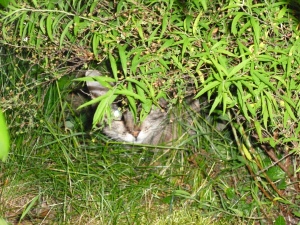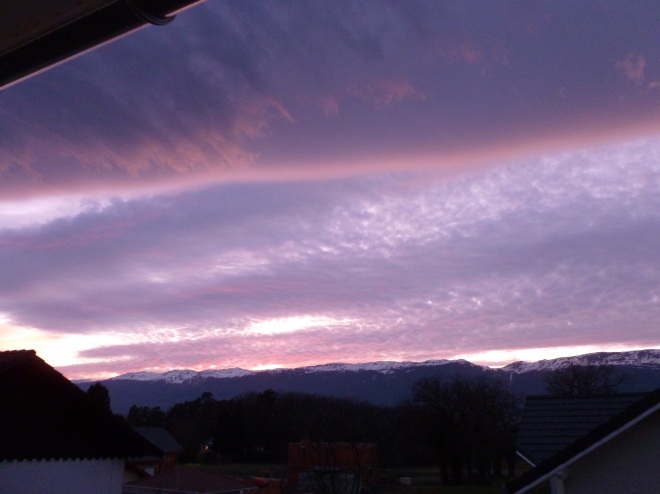 May Sarton did her best to become a household name. At her death in 1995, she had written 53 books: 19 novels, 17 books of poetry, 15 nonfiction works including her acclaimed journals, 2 children’s books, a play, and some screenplays. She ran away to join the theatre aged seventeen, went bankrupt and switched to writing, was friends with Elizabeth Bowen, had tea regularly with Virginia Woolf, translated from the French with Louise Bogan. Her early work was highly acclaimed, then she fell out of fashion, though never quite out of print. Her reputation spread more through word of mouth, on college campuses and amongst feminists (especially after she came out as a lesbian in 1965). Towards the end of her life, she became better known for her frank discussion of loneliness and aging in her non-fiction.
May Sarton did her best to become a household name. At her death in 1995, she had written 53 books: 19 novels, 17 books of poetry, 15 nonfiction works including her acclaimed journals, 2 children’s books, a play, and some screenplays. She ran away to join the theatre aged seventeen, went bankrupt and switched to writing, was friends with Elizabeth Bowen, had tea regularly with Virginia Woolf, translated from the French with Louise Bogan. Her early work was highly acclaimed, then she fell out of fashion, though never quite out of print. Her reputation spread more through word of mouth, on college campuses and amongst feminists (especially after she came out as a lesbian in 1965). Towards the end of her life, she became better known for her frank discussion of loneliness and aging in her non-fiction.
And yet she is relatively little-known outside the world of poets and feminists. Gertrude Stein, with her meagre output and difficult style, is better-known as a grande dame of literature than May Sarton. Sarton herself blamed this on her refusal to ‘play ball’, because she did not buy into the academic world of teaching poetry or do the rounds at writers’ conferences. However, as I read her collected poems, I also thought that maybe her poetic style has something to do with it.
Her style is too simple (deceptively so), for those who like their feelings to be raw and overpowering, or else carefully hidden in layers of metaphor. She is not experimental or loud. In fact, she reminds me of a favourite middle-aged aunt: at one with nature, supremely cultured and civilised, a delightful conversationalist, but a bit old-fashioned and unadventurous in poetic form. Yet a multitude of emotions – all human emotion – is contained within the seemingly tame confines of her verse. All of the big themes of life: truth, beauty, love, loneliness, fear, ageing, illness are treated here. They are just not paraded about on a baroque stage, carrying out elaborate theatrical gestures.
There is pure joy at loving and being loved, careful observations of nature:
And then suddenly in the silence someone said,
“Look at the sunlight on the apple tree there shiver:
I shall remember that long after I am dead.”
Together we all turned to see how the tree shook,
How it sparkled and seemed spun out of green and gold,
And we thought that hour, that light and our long mutual look
Might warm us each someday when we were cold.
And I thought of your face that sweeps over me like light,
Like the sun on the apple making a lovely show,
So one seeing it marveled the other night,
Turned to me saying, “What is it in your heart? You glow.”
Not guessing that on my face he saw the singular
Reflection of your grace like fire on snow –
And loved you there.
 Many of her poems are love poems, and also suffused with prayer and spirituality, which perhaps are topic which have fallen slightly out of fashion. Her emotions are carefully restrained and calibrated, rather than given free rein: the ‘stiff upper lip’ is perhaps not perceived as an asset in poetry. And of course, she loved classical poetic forms, although she was able to (and did, on occasion) write exhilarated bursts of free verse. In an interview, she talks about the power of metre and beat in poetry: ‘The advantage of form, far from being “formal” and sort of off-putting and intellectual, is that through form you reach the reader on this subliminal level. I love form. It makes you cut down. Many free verse poems seem to me too wordy. They sound prose-y, let’s face it…. Very few free verse poems are memorable.’
Many of her poems are love poems, and also suffused with prayer and spirituality, which perhaps are topic which have fallen slightly out of fashion. Her emotions are carefully restrained and calibrated, rather than given free rein: the ‘stiff upper lip’ is perhaps not perceived as an asset in poetry. And of course, she loved classical poetic forms, although she was able to (and did, on occasion) write exhilarated bursts of free verse. In an interview, she talks about the power of metre and beat in poetry: ‘The advantage of form, far from being “formal” and sort of off-putting and intellectual, is that through form you reach the reader on this subliminal level. I love form. It makes you cut down. Many free verse poems seem to me too wordy. They sound prose-y, let’s face it…. Very few free verse poems are memorable.’
There is indeed great musicality in her poetry, as well as references to music throughout:
We enter this evening as we enter a quartet
Listening again for its particular note
The interval where all seems possible,
Order within time when action is suspended
And we are pure in heart, perfect in will.
Some poems (especially later ones) seem little more than jotted down observations, and she does not always resist the temptation of a lazy cliché or facile rhyme. At times, she even has a tendency to preach (in her poems written at the time of the Vietnam War for instance). Yet there is no doubting the sincerity of her introspection, her powers of observation of nature, or how seriously she does take her poetry. Some of her descriptions of the essence of poetry will make any poet shiver in recognition:
It is not so much trying to keep alive
As trying to keep from blowing apart
From inner explosions every day. […]
Prisoner at a desk? No, universe of feeling
Where everything is seen, and nothing mine
To plead with or possess, only partake of,
As if at times I could put out a hand
And touch the lion head, the unicorn.
Not showy, not immediately life-changing, but the kind of poetry that seeps through your pores gradually. I’m glad that Open Road Media are reissuing her Collected Poems. I’m also curious to read her journals now and hope they are still in print. The kind of writing to savour, to dip in and out of, like going to have tea every week with your favourite aunt.
One interesting final point about the difficulty of reading poetry ebooks.The publisher comments on this in the introduction: how, because of the shape-shifting qualities of electronic type, it is hard to see the exact visual layout of lines as the poet imagined them. I also find it much harder to remember certain poems or find them again to quote from them. I think I will stick to print copies for poetry collections of more than 1-2 poems in the future.
 Open eyes of pearl, ruby mouth,
Open eyes of pearl, ruby mouth,




